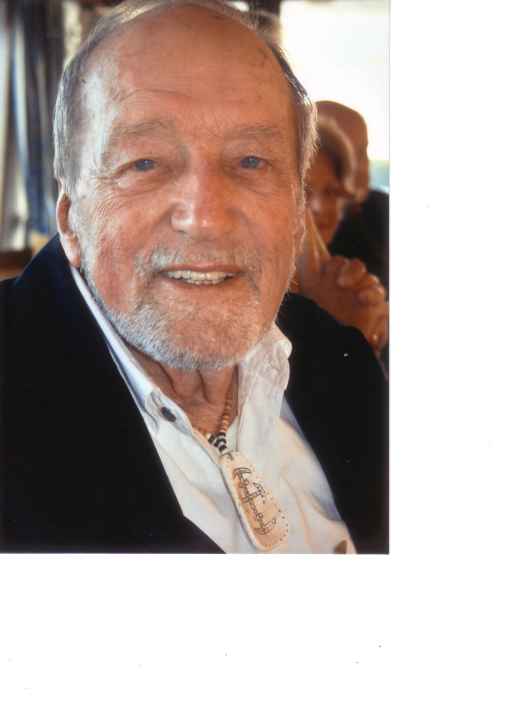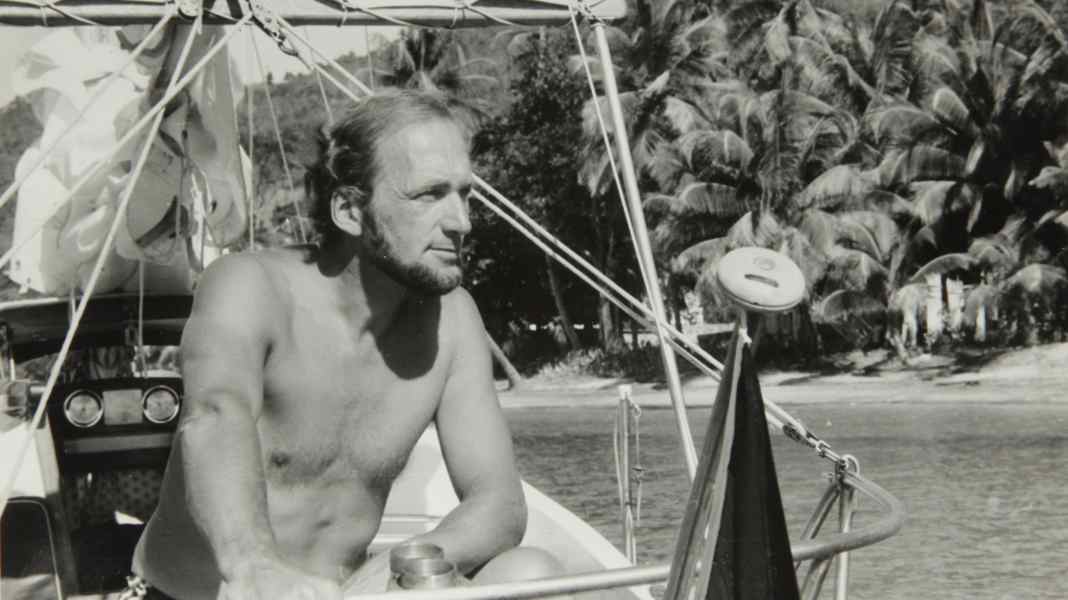
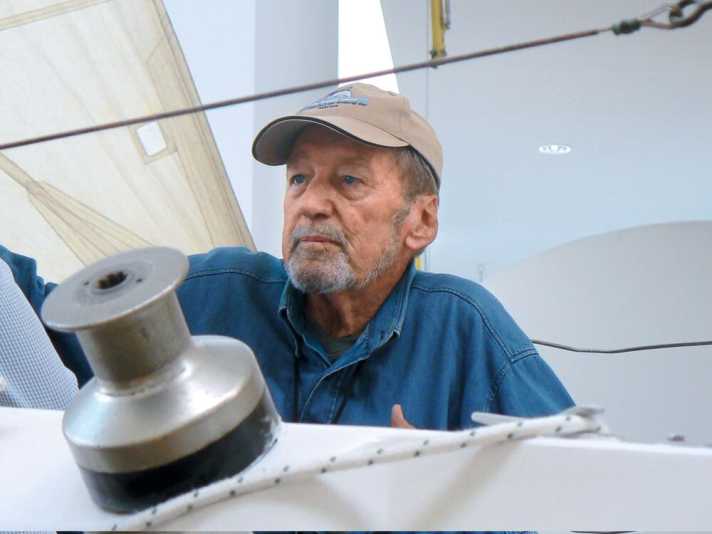
Gebhard was one of Germany's great sailing pioneers. The sport was not yet very popular again in the post-war period, when the Salzburg native bought his first "Solveig", a Hansa dinghy, from Abeking & Rasmussen. From 1956, he sailed on his home waters, Lake Starnberg, and completed extremely challenging trips on the Mediterranean, through the Suez and to the Red Sea with the open boat.
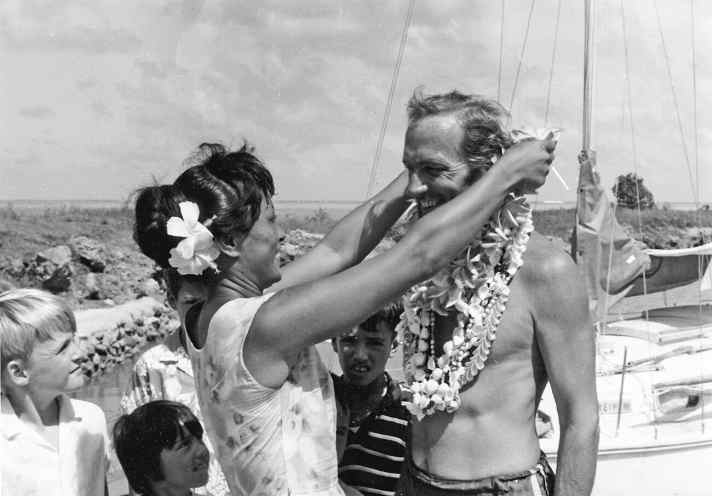
He sailed the transatlantic for the first time in 1963, with his second "Solveig", a 5.60 metre long plywood "Caprice". The reactions were correspondingly euphoric, albeit mostly abroad. But his popularity also grew in this country - in any case, it was soon enough for Gebhard to make a living as a sailor and travelling lecturer.
Finally, the third "Solveig", a Condor from Stöberl, carried Gebhard around the world twice single-handed (1967-70 and 1975-79). This makes Rollo Gebhard the first German to circumnavigate the world twice solo, incidentally: To this day, no one in the world has managed to do this with a smaller boat.
Gebhard was the first to film these solo journeys - the broadcast on ZDF achieved an almost unbelievable quota of 50 per cent!
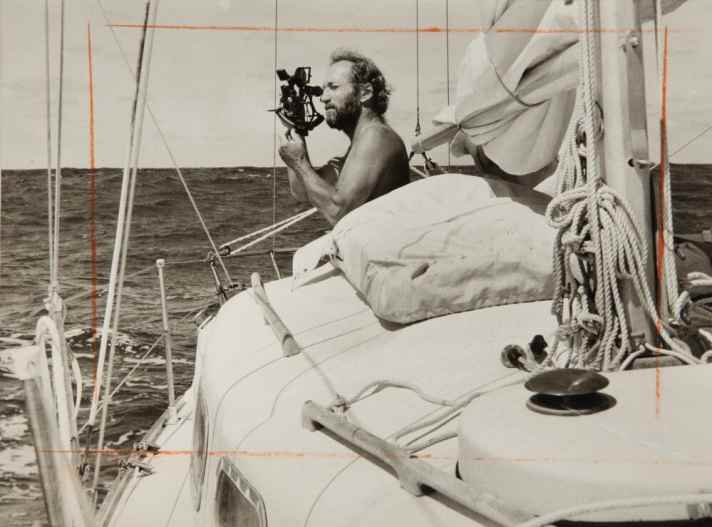
Gebhard completed his third, eight-year circumnavigation of the world from 1983 with his future wife Angelika on a Hallberg-Rassy 42 - including a non-stop voyage from Australia to Emden. He subsequently received the Order of Merit of the Federal Republic of Germany and top sailing honours such as the Trans-Ocean Prize.
Rollo Gebhard then devoted himself to environmental protection with his usual enthusiasm. In 1991, he founded the Society for the Rescue of Dolphins ("This is my duty as a sailor"), for which he was active until his death. During this time, he mainly travelled on inland waterways, for example to the Black Sea, through Russia and to the Mediterranean.
Gebhard published more than a dozen books about his voyages with the Delius Klasing publishing house, some of which became bestsellers, most notably the classic "A Man and His Boat".
In recent years, Rollo Gebhard complained of declining fitness due to his age, but mentally he was in admirable shape right up to the end. Gebhard died after Christmas at his home in Bad Wiessee am Tegernsee as a result of a stroke.
The funeral and memorial service will take place on 7 February in the Protestant church in Gmund am Tegernsee.
